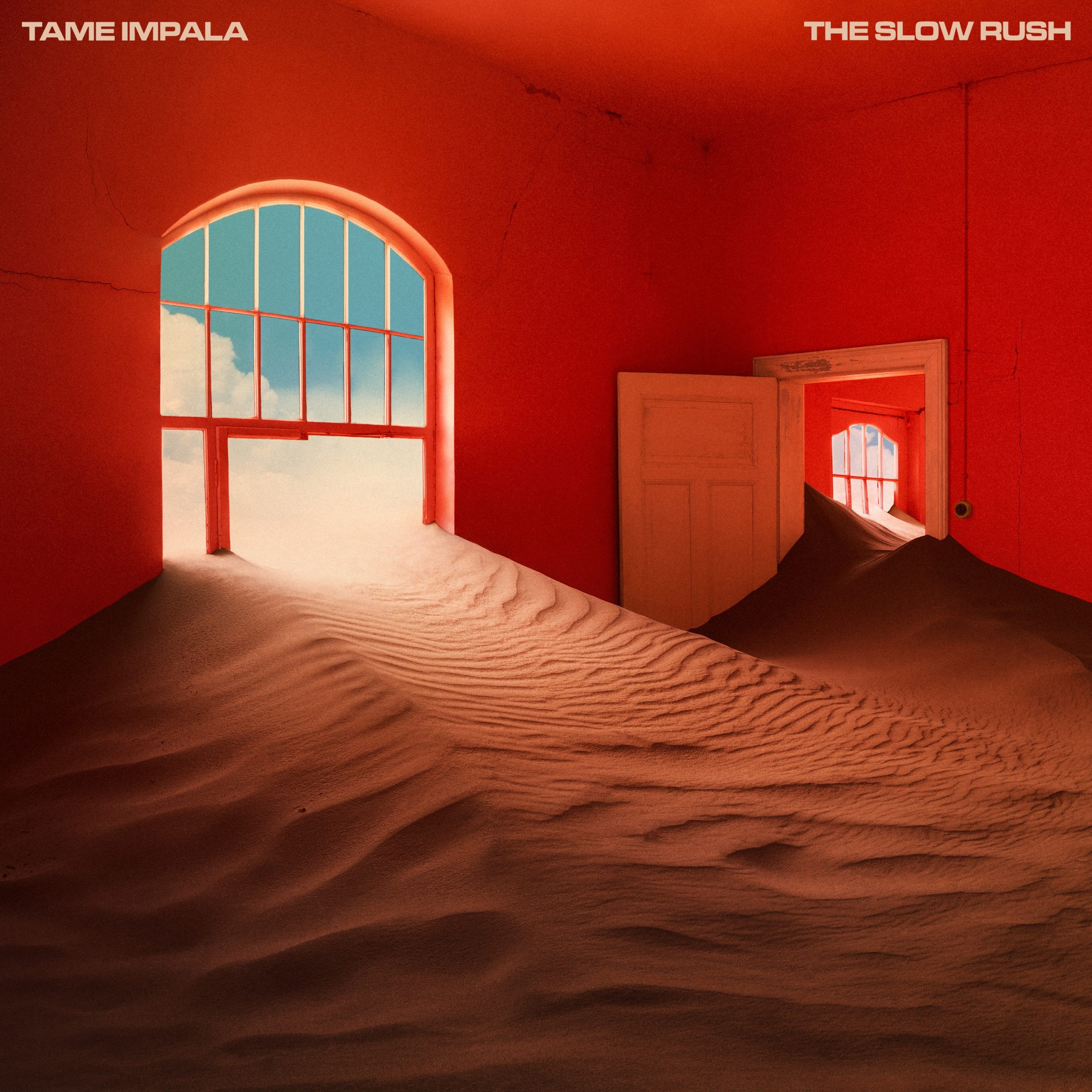It’s been a weird few years for Tame Impala’s Kevin Parker. After the critically and commercially acclaimed Currents elevated Tame Impala from a darling psych-rock project to a household name in mainstream music, even leading them to headline Coachella last year, Parker explored new musical avenues by collaborating with the likes of Mark Ronson, Travis Scott and Lady Gaga over the last five years.
After such a vast shift in Kevin Parker’s status as a musician then, the themes of nostalgia and time that permeate The Slow Rush feel especially potent. Parker sings more honestly than ever before about his personal struggles of the past, be it the pain of accepting the loss of his father in ‘Posthumous Forgiveness’ or his less-than-bearable humble beginnings mentioned in ‘Lost In Yesterday’. Likewise, the implications of Tame Impala’s recent widespread success are the cause of some anxiety and dread for Parker, who fears losing his creative edge in ‘It Might Be Time’: ‘you ain’t as young as you used to be’, ‘you’re goin’ under’.
Despite the newfound lyrical candidness that Parker describes as ‘therapy’ for himself and his listeners, Tame Impala’s signature psychedelic soundscapes appear once again, densely layered throughout a track list that places a heavy emphasis on funk, pop and disco beats. Although The Slow Rush is sonically decorated with rich strokes of Parker’s iconic psychedelic reverberations, what truly shines in the album is the dynamism between the crunchy basslines and the flawlessly rhythmic drum performances which act as perfect foundations for the songs to pivot upon.
There’s a lot to love here, both thematically and sonically, which makes the album’s structural defects all the more frustrating. Running at just over 57 minutes, The Slow Rush is not only Tame Impala’s longest album, but also its most bloated and inconsistent. Tracks that at first appear tantalising such as ‘One More Year’ or ‘On Track’ often fail to develop enough to reach musical highs, with the absence of a satisfying climax causing some songs to just fizzle out into the aether. Likewise, the bite-sized exhibitions of talent found in ‘Glimmer’ or the interlude of ‘Breathe Deeper’ are brief enough to feel merely like half-baked ideas rather than fully realised tracks.

While most listeners will likely find themselves in awe of the dramatic heights reached in tracks such as ‘Tomorrow’s Dust’ or ‘It Might Be Time’ – both shining examples of Parker’s outstanding song writing ability – the cyclical nature of some songs or their disjointed compositions lead to an album that demands an almost uncompromisingly patient listen. The Slow Rush’s best ideas ultimately shine above all else, but at times the experience can be frustratingly trying.

